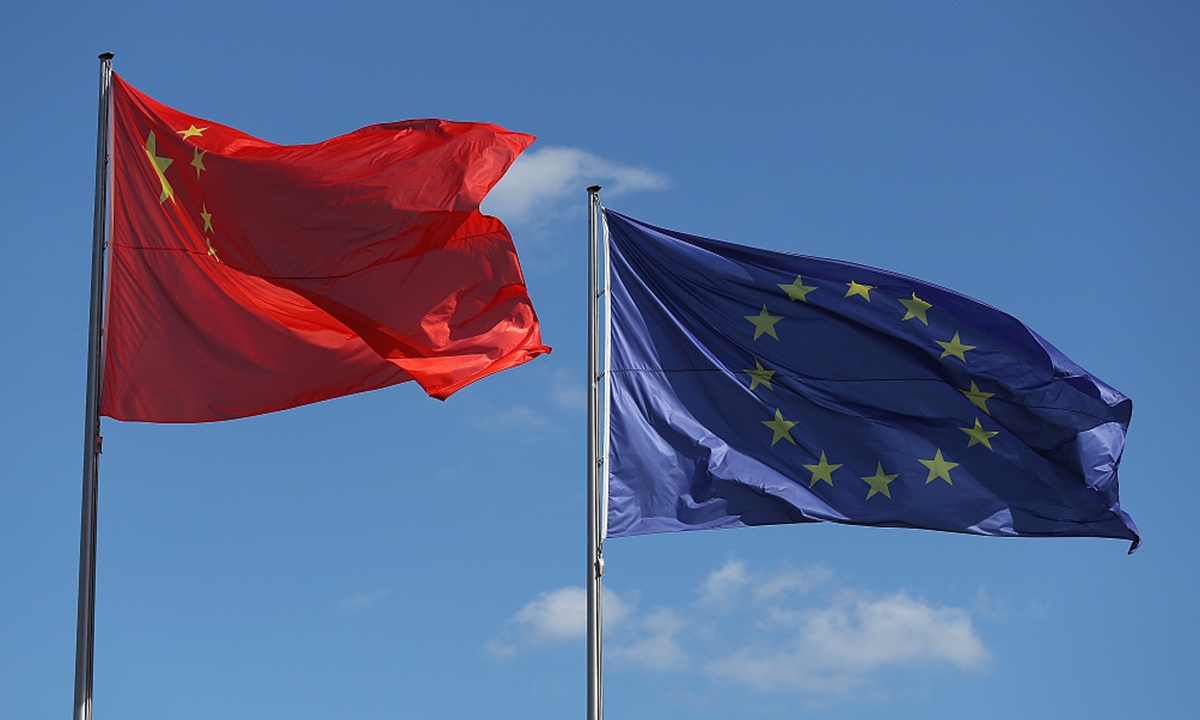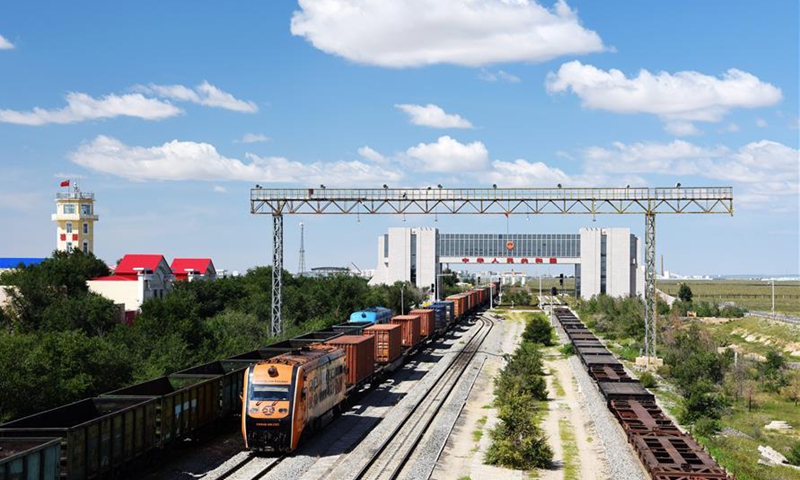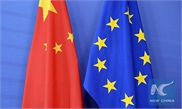SOURCE / INDUSTRIES
China becomes EU’s largest trade partner

China EU Photo:VCG
China has become the EU's largest trade partner for the first time, latest data shows, highlighting that the economic ties of the close comprehensive strategic partnership between China and the EU are intertwined with each other's industrial chain.
The data also discredits some media reports that Beijing's hopes of using Europe as a counterweight to the US have faltered, as China faces rising anger over its policies and behavior including trade. Chinese experts said the noise will not have any impact on sound trade relations between the two economies.
The latest data from Eurostat shows China has become the EU's largest trade partner for the first time, surpassing the US by 5.2 billion euro ($6.16 billion). From January to July, trade between China and the EU rose 2.6 percent to 328.7 billion euro amid COVID-19.
China is now the EU's largest source of imports, accounting for 21.9 percent of its total imports, and the third-largest export market at 10.3 percent, Eurostat said.

A China-Europe freight train runs through the national gate at Erenhot Port in north China's Inner Mongolia Autonomous Region, Sept. 4, 2020. The border port of Erenhot has seen a total of 1,500 China-Europe freight trains passing through this year, local authorities said Friday.Photo:Xinhua
The two partners have close bilateral networks of production, innovation, trade, investment and finance, and in the past few years, China has taken many measures to open up from manufacturing to the service and financial industries, which have created better condition for China-EU investment cooperation, Xu Hongcai, deputy director of economic policy commission at China Association of Policy Science, told the Global Times on Friday.
Ties between China and Europe are widening, and have become more firm in recent years. Since the outbreak of the epidemic, Chinese leaders have closely interacted with European leaders and actively carried out "cloud diplomacy," and China has also continued to support European countries to fight the virus.
Chinese, German and EU leaders held a virtual summit on Monday, reaffirming to further strengthen cooperation, ranging from trade to epidemic control. It sent a signal that the parties remain committed to pursuing pragmatic engagement rather than focusing on differences, and also injects impetus to the global economy.
The leaders announced the signing of the China-EU agreement on geographical indications. They also agreed to establish a China-EU High Level Environment and Climate Dialogue and a China-EU High Level Digital Cooperation Dialogue, and to forge China-EU green and digital partnerships. Those results show the partners have been the biggest economies in the world amid trade tensions, created by an increasingly destructive US government, Chinese experts said.
However, some noise continues to surface, as the US is seeking to meddle in China-Europe relations, even claiming there is rising dissatisfaction with China's policies in Europe.
A report from the New York Times Thursday said China is facing rising anger and frustration in Europe, from trade to human rights, and even Pavel Novotny, the outspoken district mayor in Prague, called the Chinese "impudent, thoughtless, uncouth clowns" and demanded an apology after Chinese Foreign Minister Wang Yi rebuked Czech Senate Speaker Milos Vystrcil for visiting Taiwan Province this month.
Last month, US Secretary of State Mike Pompeo traveled to Europe on what some Chinese experts called a trip of lies and fear-mongering over China.
Obviously, the US is instigating Sino-EU relations, for US sees there are different views on China and EU relations, but EU is politically mature, Chinese experts said, adding the US has been buried in crises ranging from the outbreak of COVID-19 to social turbulence, but China and EU are taking more practical way to recover from the COVID-19 shock.
"It is normal for politicians to use the media to hype the 'China threat' theory. But sings that the two partners are moving forward together are becoming clearer and more stable, and the noise will not stop cooperation between the two economies," Zhao Junjie, a research fellow at the Chinese Academy of Social Sciences' Institute of European Studies, told the Global Times on Friday.


